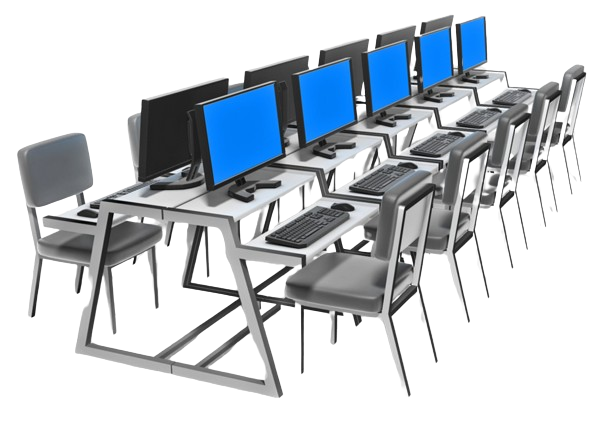
Computer Lab
The use of information technology has permeated every aspect of our daily lives. Our school has a computer lab as a testament to how important it is. The most recent models of computers and related accessories are available in the computer lab.
To meet the demands of the modern world, practical computer training is provided to all students from class I.
Computer labs in schools are essential for several reasons:
- Digital Literacy: In today’s increasingly digital world, it is crucial for students to develop digital literacy skills. Computer labs provide a dedicated space where students can learn and practice using computers, software, and the internet effectively. They can gain skills in typing, navigating the web, using productivity tools, and understanding basic programming concepts.
- Access to Technology: Not all students have access to computers and the internet at home. A computer lab ensures that all students, regardless of their socio-economic background, have equal access to technology and can acquire the necessary digital skills. It bridges the digital divide and helps prevent educational inequalities.
- Research and Information Retrieval: Computer labs enable students to conduct research and gather information for their projects and assignments. They can access online databases, educational websites, and digital libraries, allowing them to explore a vast range of resources beyond traditional textbooks. This access promotes independent learning and enhances their ability to find accurate and up-to-date information.
- Collaborative Learning: Computer labs facilitate collaborative learning among students. They can work together on group projects, share ideas, and exchange knowledge using various software applications and communication tools. Collaboration helps develop teamwork, problem-solving, and communication skills, preparing students for future academic and professional environments.
- Skill Development: Computer labs provide an environment where students can develop specific skills required in various disciplines. They can learn graphic design, programming, video editing, data analysis, and more. These skills are increasingly in demand in today’s job market, and exposure to such tools and technologies can broaden students’ career prospects.
- Online Assessments and Examinations: Many educational institutions are transitioning to online assessments and examinations. A computer lab equipped with the necessary infrastructure allows schools to conduct these assessments smoothly and securely. It enables students to adapt to online testing formats and prepares them for similar scenarios in higher education or employment.
- Practical Application of Learning: Computer labs offer students the opportunity to apply theoretical concepts learned in classrooms to practical projects. They can engage in programming exercises, simulate scientific experiments, create multimedia presentations, or explore virtual simulations. Such hands-on experiences reinforce learning and make it more engaging and memorable.
Overall, computer labs play a crucial role in enhancing education by providing access to technology, fostering digital literacy, facilitating research, promoting collaboration, developing skills, enabling online assessments, and allowing practical application of knowledge. They are essential in preparing students for the digital age and equipping them with the necessary tools for academic and professional success.
